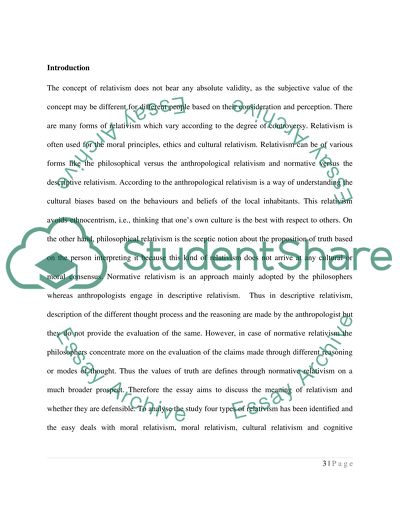Cite this document
(“Cultural Relativism and Universal Human Rights Essay”, n.d.)
Retrieved from https://studentshare.org/sociology/1400928-what-is-relativisim-is-relativism-defensible
Retrieved from https://studentshare.org/sociology/1400928-what-is-relativisim-is-relativism-defensible
(Cultural Relativism and Universal Human Rights Essay)
https://studentshare.org/sociology/1400928-what-is-relativisim-is-relativism-defensible.
https://studentshare.org/sociology/1400928-what-is-relativisim-is-relativism-defensible.
“Cultural Relativism and Universal Human Rights Essay”, n.d. https://studentshare.org/sociology/1400928-what-is-relativisim-is-relativism-defensible.


